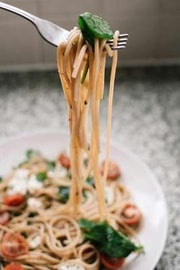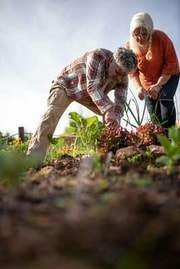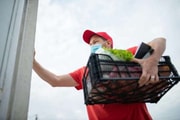Millions of Australians could be fined $11,000 for these everyday items
By
- Replies 51
There’s no denying that plastic pollution is a major problem. Every year, millions of tons of plastic end up in our oceans, where it harms marine life and pollutes the water. It’s estimated that by 2050, there will be more plastic in the ocean than fish.
The banning of single-use plastic has been a topic of debate among legislators for years. Some argue that it’s a necessary step to reduce pollution, while others claim that it would be too disruptive to businesses and consumers.
In a recent law enacted by the NSW government, residents may soon face significant fines of up to $11,000 for distributing or transporting single-use plastic products.
According to the NSW government, the phase-out, which will see the scrapping of everyday plastic items from stores and households starting on November 1, will prevent roughly 2.7 billion pieces of litter from entering the state's waterways and environment over the next 20 years.
The new list of vetoed items as per the government's Plastic Reduction and Circular Economy Act, passed in November last year, extends to plastics considered biodegradable or compostable.
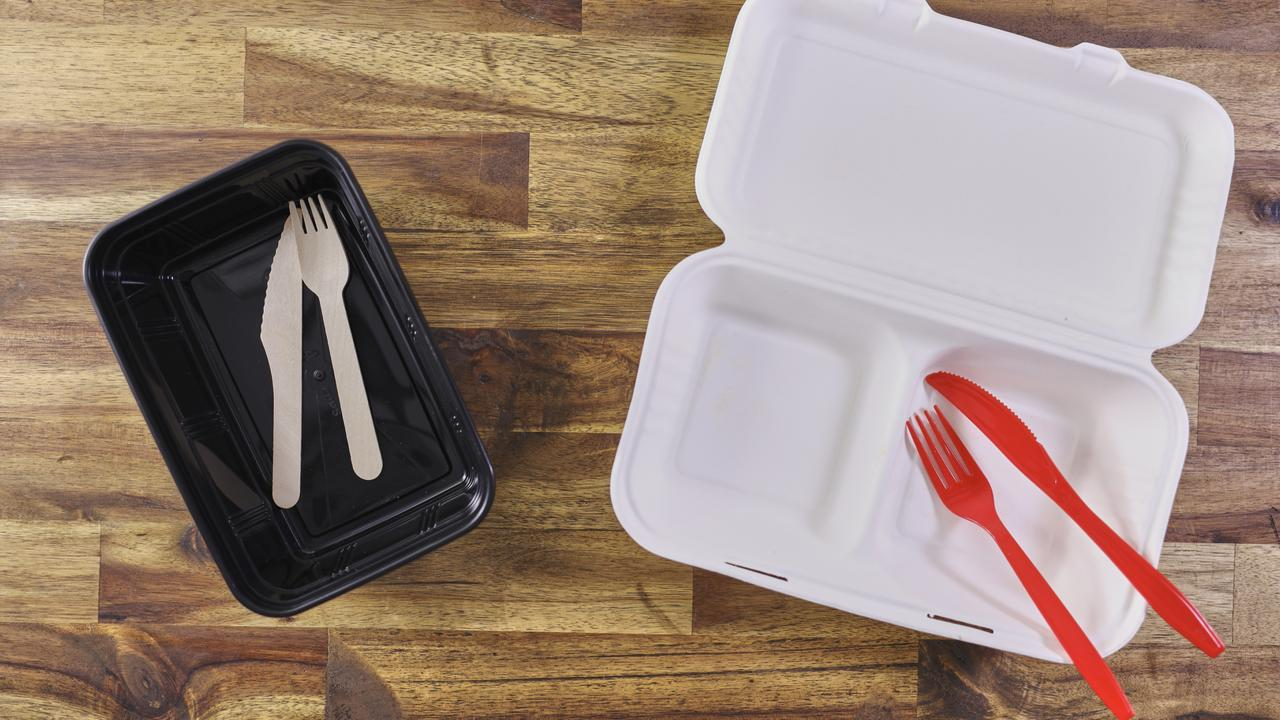
The NSW government imposed a ban on single-use plastics in November last year. Credit: news.com.au.
The following items are banned from NSW:
• Single-use plastic straws
• Coffee stirrers
• Cutlery
• Plates
• Bowls
• Cotton buds
• Expanded polystyrene food service items
• Plastic microbead-containing rinse-off personal care products, such as some face cleansers, shampoos, and toothpaste.
Individuals who supply, sell, or distribute any of the prohibited commodities face a maximum court fine of 100 units ($11,000), while businesses that do so face a maximum fine of 500 units ($55,000).
If a manufacturer, producer, wholesaler, or distribution company is discovered distributing plastic items included in the list, the penalties are doubled. Individuals may be fined $22,000 and groups up to $110,000.
A Stop Notice will also be given to those who are discovered to be supplying prohibited materials. $55,000 per person or $275,000 per business may be fined for disregarding the stop notice.
If you are using medical supplies that are made of single-use plastics, don't fret. People with a disability or who have a medical necessity for such items are given special consideration.
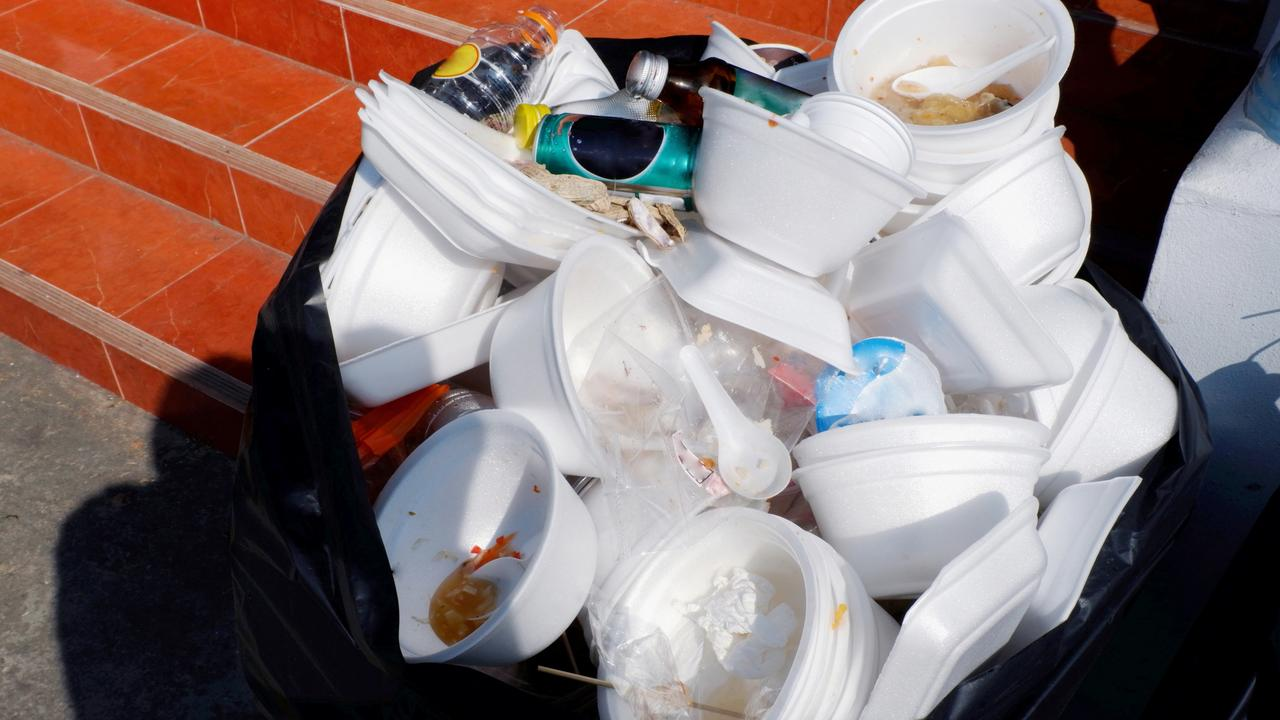
Businesses that still sell prohibited plastic products could risk a $275,000 penalty. Credit: news.com.au.
Additionally, some items are exempted from the ban:
• Serving utensils e.g. salad servers or tongs
• Food and beverage packaging seals
• Items included within or attached to that packaging, through a machine-automated process (such as a straw attached to a juice box or a spoon included with a yogurt).
The most recent restriction comes after the NSW government removed all lightweight plastic bags from the entire state in June of this year.
NSW Minister for Environment and Heritage James Griffin said: 'Single-use plastic is used by many of us for just a few convenient minutes, but it remains in our environment for many years, eventually breaking into microplastics.'
'Single-use plastic items and packaging make up 60 per cent of all litter in NSW. By stopping the supply of problematic plastic in the first place, we’re helping prevent it from entering our environment as litter, or going into landfill.'
The environment is important. It's our life support system. It provides the air we breathe, the water we drink, and the food we eat. It's also the foundation of our economy and our way of life.
That's why it's so important that we have laws that protect the environment. These laws help us prevent pollution, conserve our natural resources, and safeguard our health.
Do you think other governments should follow suit with the NSW government's latest move? Better yet, what do you think about the total ban on single-use plastic? Share your insights with us in the comments below!
The banning of single-use plastic has been a topic of debate among legislators for years. Some argue that it’s a necessary step to reduce pollution, while others claim that it would be too disruptive to businesses and consumers.
In a recent law enacted by the NSW government, residents may soon face significant fines of up to $11,000 for distributing or transporting single-use plastic products.
According to the NSW government, the phase-out, which will see the scrapping of everyday plastic items from stores and households starting on November 1, will prevent roughly 2.7 billion pieces of litter from entering the state's waterways and environment over the next 20 years.
The new list of vetoed items as per the government's Plastic Reduction and Circular Economy Act, passed in November last year, extends to plastics considered biodegradable or compostable.
The NSW government imposed a ban on single-use plastics in November last year. Credit: news.com.au.
The following items are banned from NSW:
• Single-use plastic straws
• Coffee stirrers
• Cutlery
• Plates
• Bowls
• Cotton buds
• Expanded polystyrene food service items
• Plastic microbead-containing rinse-off personal care products, such as some face cleansers, shampoos, and toothpaste.
Individuals who supply, sell, or distribute any of the prohibited commodities face a maximum court fine of 100 units ($11,000), while businesses that do so face a maximum fine of 500 units ($55,000).
If a manufacturer, producer, wholesaler, or distribution company is discovered distributing plastic items included in the list, the penalties are doubled. Individuals may be fined $22,000 and groups up to $110,000.
A Stop Notice will also be given to those who are discovered to be supplying prohibited materials. $55,000 per person or $275,000 per business may be fined for disregarding the stop notice.
If you are using medical supplies that are made of single-use plastics, don't fret. People with a disability or who have a medical necessity for such items are given special consideration.
Businesses that still sell prohibited plastic products could risk a $275,000 penalty. Credit: news.com.au.
Additionally, some items are exempted from the ban:
• Serving utensils e.g. salad servers or tongs
• Food and beverage packaging seals
• Items included within or attached to that packaging, through a machine-automated process (such as a straw attached to a juice box or a spoon included with a yogurt).
The most recent restriction comes after the NSW government removed all lightweight plastic bags from the entire state in June of this year.
NSW Minister for Environment and Heritage James Griffin said: 'Single-use plastic is used by many of us for just a few convenient minutes, but it remains in our environment for many years, eventually breaking into microplastics.'
'Single-use plastic items and packaging make up 60 per cent of all litter in NSW. By stopping the supply of problematic plastic in the first place, we’re helping prevent it from entering our environment as litter, or going into landfill.'
The environment is important. It's our life support system. It provides the air we breathe, the water we drink, and the food we eat. It's also the foundation of our economy and our way of life.
That's why it's so important that we have laws that protect the environment. These laws help us prevent pollution, conserve our natural resources, and safeguard our health.
Do you think other governments should follow suit with the NSW government's latest move? Better yet, what do you think about the total ban on single-use plastic? Share your insights with us in the comments below!





